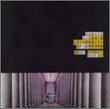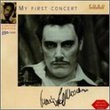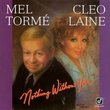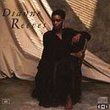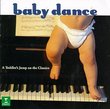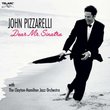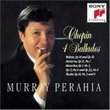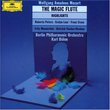| All Artists: Alfred Cortot, Chopin, Liszt, Verdi, Ravel Title: Alfred Cortot Plays Chopin, Liszt, Ravel, Schumann - Great Pianists of the 20th Century Members Wishing: 3 Total Copies: 0 Label: Philips Release Date: 3/9/1999 Genre: Classical Styles: Opera & Classical Vocal, Chamber Music, Forms & Genres, Etudes, Fantasies, Historical Periods, Classical (c.1770-1830), Romantic (c.1820-1910) Number of Discs: 2 SwapaCD Credits: 2 UPC: 028945675121 |
Search - Alfred Cortot, Chopin, Liszt :: Alfred Cortot Plays Chopin, Liszt, Ravel, Schumann - Great Pianists of the 20th Century
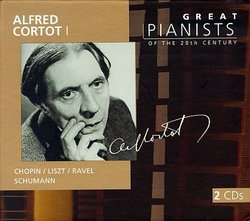 | Alfred Cortot, Chopin, Liszt Alfred Cortot Plays Chopin, Liszt, Ravel, Schumann - Great Pianists of the 20th Century Genre: Classical
|
Larger Image |
CD DetailsSimilar CDsSimilarly Requested CDs
|
CD ReviewsThe Greatest Artist of the 20th Century!! Charles R. Hall Jr. | 06/02/1999 (5 out of 5 stars) "Cortot is, in my opinion, the greatest interpreter of piano music that this century has witnessed. True, he missed a lot of notes, but what energy! what passion! what freedom his interpretations convey. He represents the lost "Golden Age" of pianism- the age of artistic integrity and excessive rubato! Pay special attention to Schumann's Kreisleriana. Cortot's version has never been equaled, not even by Horowitz himself. His J'eaux D'eau is not only unabashedly sensuous but also one of the fastest versions ever recorded. His Chopin E'tudes, though quite a few notes are missing, are the most energetic ever recorded. Their tempestuousness shows Cortot at his best. What he lacks in accuracy, he more than makes up for with sheer force of energy and tonal beauty. Cortot, with perhaps the exception of Kempff, plays more beautifully than any other artist. His music-making is pure poetry. He was never afraid to make music his own, and this integrity makes his recordings the most rewarding that I've had the pleasure to hear. The spontaneity will delight those listeners tired of the overperfection and timidity of todays interpretations. One more recommendation. Though not on this album, Cortot's 1933 recording of Chopin's masterpiece, the 4th Ballade, is in my opinion the best recording of Chopin period. He does more with the musical structure of the piece than any other artist, and I've heard numerous other interpretations- Hoffman's, Horowitz's, Richter's, Ashkenazy's, Moisewitch's, etc.I would recommend also the 3-cd set of Cortot, Casals, and Thibaud playing various chamber pieces in trio ensemble. This set also gives one a taste of Cortot's conducting. In his lifetime, he was a noted conductor and premiered Wagner's Parsifal in Paris. Well, enough said. Bye it or miss out." Best Chopin Etudes Ever! Wrong notes and all Charles R. Hall Jr. | 10/16/2004 (5 out of 5 stars) "This set would be a great introduction to Alfred Cortot. His Etudes are the finest on disc, though new listeners will need to get used to the performing methods of the 30's. Cortot himself is an aquired taste, he often hits wrong notes and overuses rubato, something all pianists of the era did. If you are curious about historical pianists and need a place to start. there is no better disc than this, and give it a chance, if for some reason you prefer today's etudes to Cortot's know this, his teacher was Chopin's favourite pupil, and you will never be closer to hearing them the way they were meant to sound," A fine testament, but with some laboured playing john | USA | 07/03/2004 (3 out of 5 stars) "This is a fine historical testament to the playing of the important legend Alfred Cortot: the program selection is thorough and attractive (save for that one campy interpretation of Liszt's 2nd Rhapsody, which belongs in the garbage).
Every aspiring pianist should listen to Cortot's recordings at least once, and Cortot's devoted fans like to boast of his limitless vision.Yet I find it partisan to say that he is consistently brilliant. I have nothing against wrong notes; yet his often-praised recording of the Chopin Etudes is, to my ears, laboured. I hear a lot of struggling in it, and in very many cases the technique seems to get in the way of the music. Take the strained first Etude, for example, the insecurity of his No. 23, or the choppy F major No. 8. Listening to Cortot's Chopin Etudes personally makes me irritable and I find myself only returning to a select few (in the flitting account of the F minor Etude, Op. 25, for example, Cortot's true genius shines through). I prefer, for example, the more gentle poetry of these etudes played by his near contemporary, Guiomar Novaes. For all its tender whimsicality, Cortot's reading of Schumann's `Carnival' is too balmy for my taste; though I would never say that his vision were peccant. The two highlights of this disc, for me, are Cortot's savage and at times magical account of Schumann's `Symphonic Etudes' (a favorite interpretation of mine), and the passionate account of `Kreisleriana'. I also removed a star because of the CD itself. The transferring is solid, but I don't like having 48 pieces crammed up on one CD, and would have preferred it had been divided into three Cds; also, the packaging, though visually very nice, is annoying: in order to emulate a LP record, the discs slip out from a very tight casing, which probably lets dust in and makes the discs easily scratched (my CD has already begun jumping, so I guess it scratched while trying to slide it out)." |

 Track Listings (28) - Disc #1
Track Listings (28) - Disc #1
